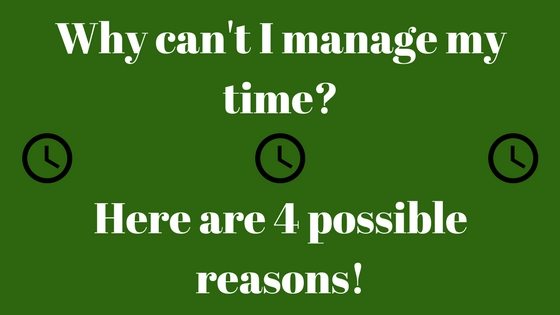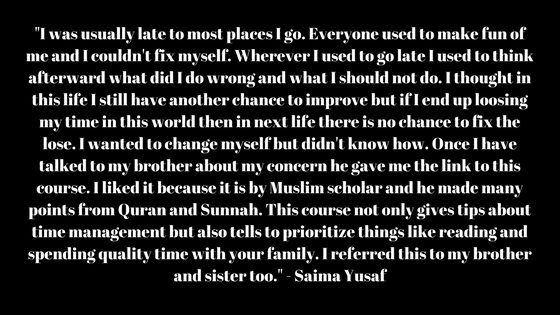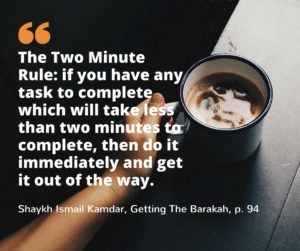Why can’t I manage my time?
Time Management seems so easy for some people, yet so hard for others. I often get frustrated emails from readers asking me “Why can’t I manage my time?”. For these readers, I usually take them through my private coaching program, or suggest they enroll in our Time Management course.
However, I have noticed that they tend to have similar reasons. There are four primary reasons why many people are unable to manage their time. Once you identify your reason, it is easier to overcome it and master the art of time management.
1. Lack of motivation/Long Term Goals
This is the common trend I have found among people who are unable to manage time. Changing one’s lifestyle to be more productive requires great effort. Nobody can make great effort at anything without real motivation. Therefore, having motivation is essential for learning time management.
I am not talking about short term goals like completing this semester of study, or complete reading this book. I am referring here to long term motivation like “I want to establish a means through wish I can help the orphans in my country,” and “I want to build an Islamic center that focuses on helping young Muslims.”
It is a strong noble long term goal that will propel you to manage your time better.
2. Bad Habits
The second obstacle to managing time are bad habits. In my book, Getting The Barakah, an entire chapter is dedicated to this topic. As overcoming bad habits is crucial for learning effective time management. Here is an extract from the book:
The Habit Trap
As time management is primarily about forming new habits, the toughest thing in the beginning is maintaining the new habits until they become a part of who you are.
Bad habits are hard to quit, but not impossible. The key is to have a clear reason to quit and a good habit to replace it with. In terms of time management, this would mean replacing the habit of procrastination with the habits of planning, chunking and working in advance.However, without determination and commitment, it is difficult to maintain momentum so it is important to be awareness of this and take measures to avoid falling back into bad habits.
Here are some methods you can use to stop yourself from falling back into bad habits:(Click Here to Purchase the eBook to read the full chapter)
3. Not realizing the priorities in your life
Another common cause about which an entire chapter has been written in my eBook. Too many of us don’t understand what our daily priorities should be. Here are few examples:
- Are the five daily Salah a priority in your life?
- Is reciting Quran on a daily basis a priority to you?
- Have you made time for your children a priority?
- Is personal development a priority to you?
You know something is priority if you are willing to spend both time and money on it. There is simple proverb in Time Management: “If you make time for the big things, you will find time for the small things.”
4. You just haven’t studied Time Management yet
If this is the case, then you simply need to study one of our time management resources. At Islamic Self Help, we offer two methods to learn time management:
- Join our online course for $44
- Purchase our eBook for $9.99
But we are making you a special offer today on our eBook.
If you use this link to purchase our eBook Bundle for $13.99, you will get our Time Management eBook and our Goal Setting Workbook, along with two FREE eBooks worth $10!
Click here to get this special offer now!









